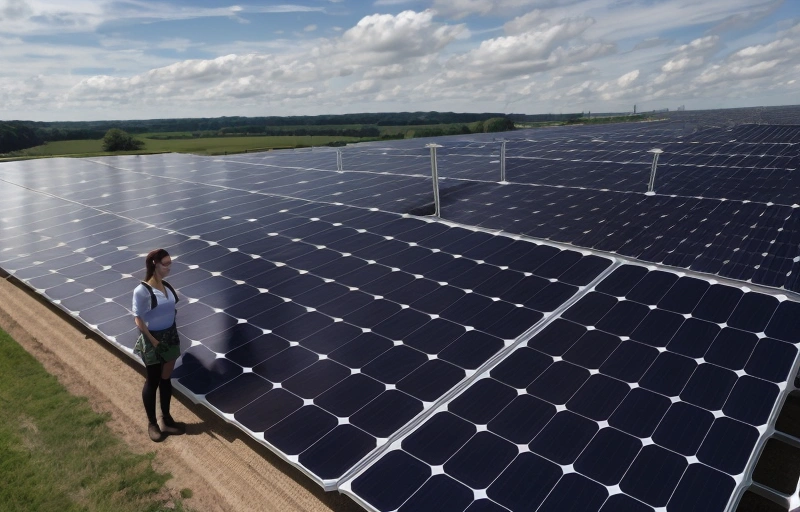Grants Support Solar for Low-Income New Hampshire Towns
New Hampshire’s energy department is gearing up to roll out an innovative grant program aimed at assisting economically challenged cities and towns in harnessing the environmental and financial advantages of solar power. The initiative, funded with $1.4 million from the 2021 federal Bipartisan Infrastructure Act, targets the installation of solar projects up to 60 kilowatts on municipal buildings or land.
Financial Boost for Solar Implementation
The grant offers substantial financial support, covering up to 95% of the costs for qualifying solar projects in lower-income cities and towns, and 60% for other municipalities. This financial boost is anticipated to make solar projects more feasible and attractive for communities facing budgetary constraints.
Beyond Carbon Emissions: Resilience and Cost Savings
The benefits extend beyond reducing carbon emissions. Solar power enhances a community’s resilience during power outages, a critical factor in today’s uncertain climate. Additionally, utilizing solar energy to power municipal facilities translates into significant cost savings, which can be reinvested in public projects or utilized to stabilize property tax rates over the long term.
Test Run for Future Expansion
The funding application has been submitted to the U.S. Department of Energy, and New Hampshire is in a “wait-and-see mode.” The state views this program as a trial run to assess demand, identify improvements, and gather insights for potential future expansion. Joshua Elliott, the director of policy and programs in the state energy department, stated, “We’ll use this process to inform what potentially a [larger] municipal program could look like.”
Solar Lag in New Hampshire
New Hampshire currently lags behind its regional counterparts in solar adoption, ranking 41st in the country for installed solar capacity. State policies to encourage solar are limited, with residential solar incentives capped at $1,000 per project and commercial solar rebates restricted to $10,000.
Municipal Interest vs. Financial Hurdles
While many cities and towns in New Hampshire express interest in solar power, financial hurdles often impede progress. Affluent towns like Hanover have successfully embraced solar, but smaller towns and those with lower incomes face challenges in realizing their solar goals.
Grant Program as a Lifeline
The grant program aims to alleviate this burden, providing a potential lifeline for towns like Colebrook and Hinsdale. Colebrook, with a median household income of just over $48,000, sees the grant as a way to fund a solar array on its town hall without burdening residents with hefty expenses. Hinsdale, facing increased property taxes and pressing infrastructure issues, views the grant as a tremendous help for its planned solar project at the transfer station.
A Tailored Approach for Smaller Towns
Though the grant program has a modest budget, it aligns well with the needs of the state. Melissa Elander of Clean Energy New Hampshire, a nonprofit advocacy group, emphasizes its suitability for smaller towns that are often overlooked in larger grant programs. She expresses excitement about the initiative, stating, “I am thrilled that it’s going to be available at all.”
In conclusion, New Hampshire’s solar grant initiative emerges as a promising solution, poised to empower disadvantaged towns, enhance sustainability, and potentially serve as a blueprint for broader solar adoption in the future.






